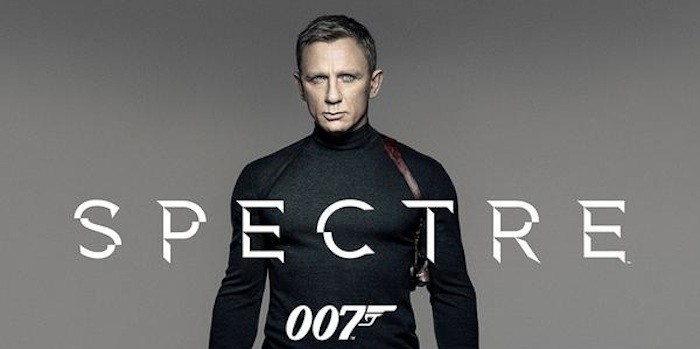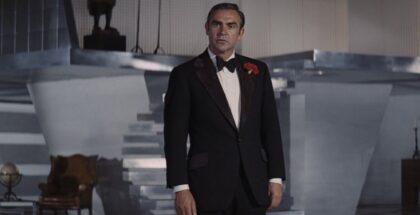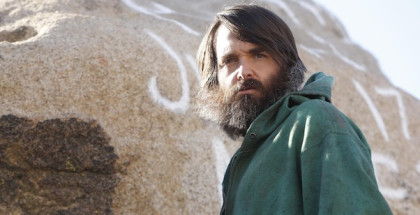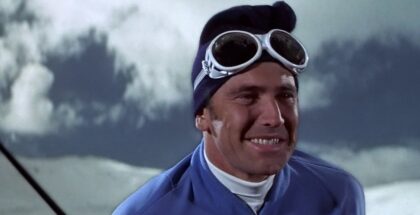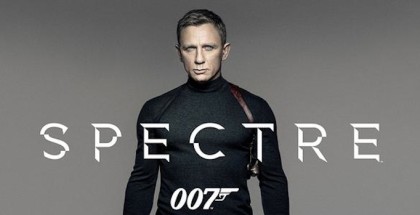Spectre film review: A backwards step
Review Overview
New Bond
6Old Bond
4David Farnor | On 29, Sep 2021
Director: Sam Mendes
Cast: Daniel Craig, Lea Seydoux, Ralph Fiennes, Ben Whishaw, Christoph Waltz
Certificate: 12
Several years ago, a respected director came up with an inspired reboot of a long-standing series. It was grittier, prettier, and unafraid of examining its characters. Then, a short while later, that same director returned to the helm and sent the whole thing crashing into the ground with a crushingly uninspired sequel. Spectre is the Star Trek Into Darkness of the James Bond franchise.
Rebooting something is never easy, but Daniel Craig’s take on James Bond, which departed from the previous cinema canon but stuck closely enough to Ian Fleming’s original text to remain faithful, managed it with aplomb; over three films (yes, even Quantum of Solace), there was a gradual development of 007’s cold shoulder (towards, killing, women and the law) – a trilogy of Bond films about Bond that carefully reintroduced all the familiar franchise elements, from Q and his gadgets to M and even Miss Moneypenny. With the slate elegantly wiped clean, Spectre, like Star Trek Into Darkness, had a sandbox in which to play and no limits to what it can do. But, like Star Trek Into Darkness, Spectre is afraid to look forward, instead spending so much time looking back that it forgets what made Daniel Craig’s Bond so good to begin with. The result is a disappointing retread of old ground.
The film begins in serious style, as Craig’s agent strolls through Mexico’s Day of the Dead parade with a confident swagger matched by director Sam Mendes, who shoots the whole sequence in a single take – in and out of crowds, lifts and even across buildings. It’s a bravura piece of blockbuster filmmaking; a flourish of wit and panache that sits right alongside James Bond’s flashy cars and branded drinks.
It’s downhill from there.
Bond’s actions, we discover, are to do with a message from his past – a neat cameo and a nice way to connect these events with others gone by. That balance between old and new is judged well in some quarters, as the familiar chestnut of 007 being out of step with the modern world is reemphasised with the introduction of C. Played by Andrew Scott with a sickening sneer, he’s a bureaucrat with the aim of bringing British spying into the new age of global surveillance and remote drones. Part-George Osborne and part-Bill Gates, he’s a wonderfully nasty piece of work – you almost wish he was the main villain of the piece.
But, alas, we already know he isn’t, because all of the trailers for Spectre have trumpeted the arrival of another shady soul: Franz Oberhauser, a figure from Bond’s family history, played by Christoph Waltz. The problem here is less that Waltz is enjoying himself in yet another cruel role, but that he’s given almost nothing to do. “It’s always been me, James,” he declares halfway through the film, trying to position himself as a mastermind of the last three films. But there’s no evidence to back it up and his credentials become even more dubious as the film goes on, with one set piece revealing that Franz has somehow had the time to craft an entire maze of torments in a recently retired building – a fun house that feels less Scaramanga and more Pat Sharp.
That uneasy tone never lets up. Despite the cast’s best efforts, you can’t shake the feeling that the script has no idea what it wants to be. There’s an understandable yearning to take Bond back to his heyday, but the writers – John Logan, Neal Purvis, Robert Wade and Jez Butterworth – have mistaken that heyday for 007’s Roger More era. And Daniel Craig is no Roger Moore. Craig’s Bond is good at grim gags, threatening witticisms and blunt punchlines – something demonstrated by a deadpan couch joke in the prologue, not to mention his use of the word “stay” – but he’s uncomfortable here, having to recite silly one-liners like its the 1970s.
Such inconsistencies plague almost every inch of the film.
Yes, it’s good to have a serious debate about the 00-section’s relevance and accountability in the 21st century, but wasn’t Raiph Fiennes’ Mallory, now the staunch defender of the licence-to-kill branch, arguing just the same thing a few hours ago? Lea Seydoux’s Madeleine Swan is a forceful, independent character, who appears to come to her senses halfway through the film, but swiftly reverts to a damsel in distress for the sake of it. Monica Belluci’s “older” woman (actually a similar age to our hero), meanwhile, is treated as even more disposable than the young sex objects once met by Moore’s womaniser. And while it’s nice to have a Bond villain lair back in the frame, our brief detour to Oberhauser’s HQ is a pointless interlude that proves irrelevant to everything that follows.
These niggles would be less frustrating if it weren’t for the good work done elsewhere. Ben Whishaw is more fun than ever as Q, while Naomie Harris and Rory Kinnear are clearly enjoying themselves as Moneypenny and Tanner. Together with Fiennes’ M, whose military background makes him an unusually active MI6 chief, they make a good espionage team. In the other corner, Dave Bautista is wasted but intimidating as a token henchman, while Jesper Christensen make a welcome return as an increasingly jaded Mr. White. A dust-up on a train and a pun on C’s name both hit the spot. The best thing of all, though, is the work by DoP Hoyte van Hoytema, who follows Roger Deakins’ silhouette-filled Skyfall with some breathtakingly bright snowscapes. When the most consistent thing in a James Bond are the visuals, though, you know something might be amiss.
Spectre is, quite simply, incoherent, not just with the Bond franchise of old, but with itself. Determined to unite past and present, it tries to mesh the traditional Bond formula with Craig’s Bond’s own subversions of it – the kind of rushed, misjudged marriage that leads to Sam Smith’s predictable and dull theme tune, accompanied by bizarrely out-of-place octopus titles that recall Hentai more than You Only Live Twice. The result is a serviceable enough action thriller, but a sub-par Bond movie, one that winds up rebooting the series’ own reboot; after reinventing James Bond as something quite remarkable, the franchise turns him into something sadly unmemorable. All too aptly, Spectre is a shadow of its former self.
This review was originally published in 2016.


